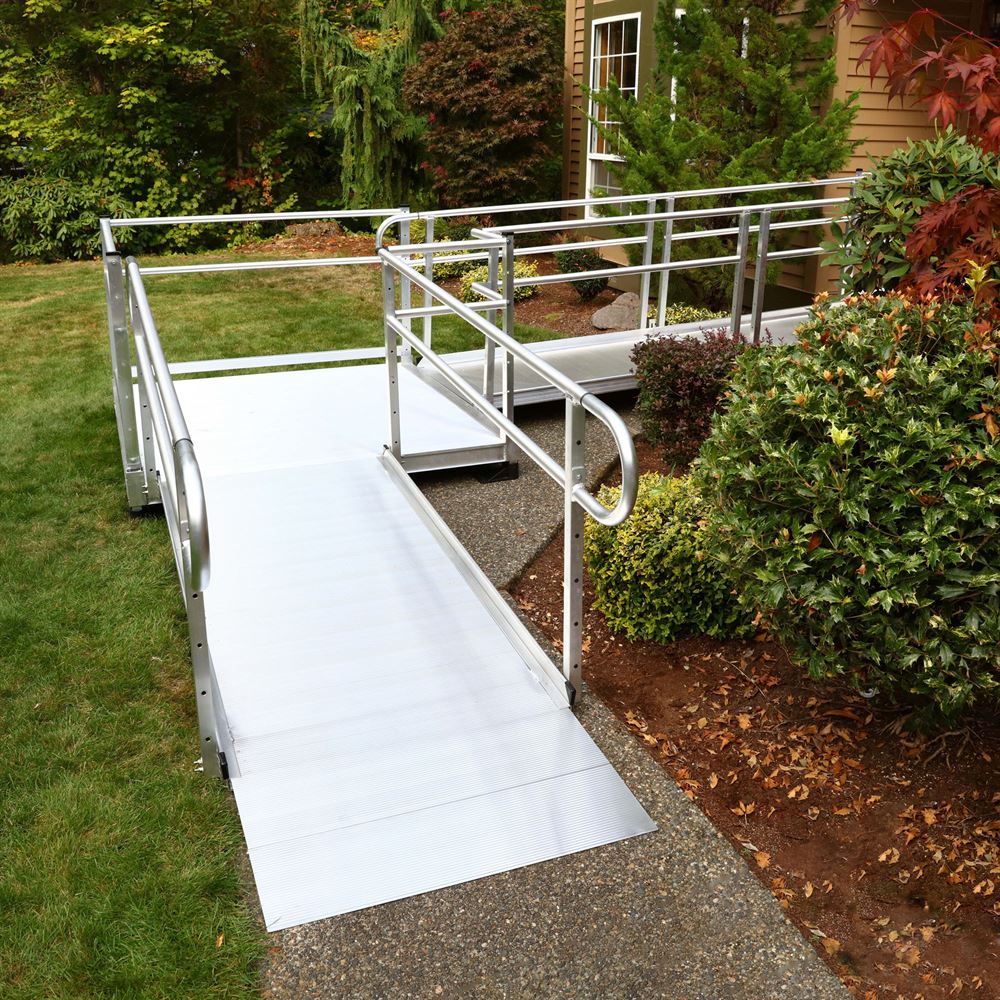
When deciding which ramp is right for your home, there are 2 major types to consider. Modular ramps and custom-built ramps each have their own advantages and considerations, depending on the specific needs and circumstances.
Modular ramps are made of aluminum or rubber and are not permanent. They can be moved and relocated if needed and are typically more affordable. Permanent ramps are custom-built on the property out of wood and is tailored to fit the specific needs of the homeowner. Here are some other differences between the two types of ramps:
Modular Ramps:
1. Ease of Installation: Modular ramps are prefabricated and are ready to install by a trained technician, making them relatively quick and easy compared to custom-built ramps.
2. Portability: One of the biggest advantages of modular ramps is their portability. They can be disassembled and moved to a different location if needed, which is especially beneficial for temporary use or for individuals who may need to relocate in the future.
3. Cost-Effectiveness: Generally, modular ramps can be more cost-effective than custom-built ramps since they are mass-produced and require less labor and material for installation.
4. Adaptability: Modular ramps often come with various configurations and accessories, allowing for some degree of customization to fit different spaces and needs.
5. Limited Customization: While modular ramps offer some degree of adaptability, they may not perfectly fit every situation, especially if the space or requirements are highly unique.
Custom-Built Ramps:
1. Tailored to Specific Needs: Custom-built ramps are designed and constructed according to the specific requirements of the individual and the space, ensuring a perfect fit and functionality.
2. Flexibility: With custom-built ramps, there are virtually no limitations in terms of design, materials, or features, allowing for complete customization based on the user's preferences and needs.
3. Integration: Custom ramps can be seamlessly integrated into the existing architecture and landscape, enhancing the overall aesthetics of the environment.
4. Long-Term Solution: Since custom ramps are built to last and are specifically tailored to the user's needs, they can provide a long-term solution that may be more durable and reliable over time.
5. Higher Cost and Time Investment: Custom-built ramps typically require more time, labor, and expertise to design and construct, which can result in higher initial costs compared to modular ramps.
The choice between modular ramps and custom-built ramps depends on factors such as budget, timeframe, level of customization needed, and long-term requirements. Modular ramps offer convenience, portability, and cost-effectiveness, while custom-built ramps provide tailored solutions with greater flexibility and durability. LiveWell specializes in ALL types of ramps and would love to help you determine the perfect ramp for your situation and your home. Give us a call today for more information.
Click here to read more blog posts and to see our recent projects.

